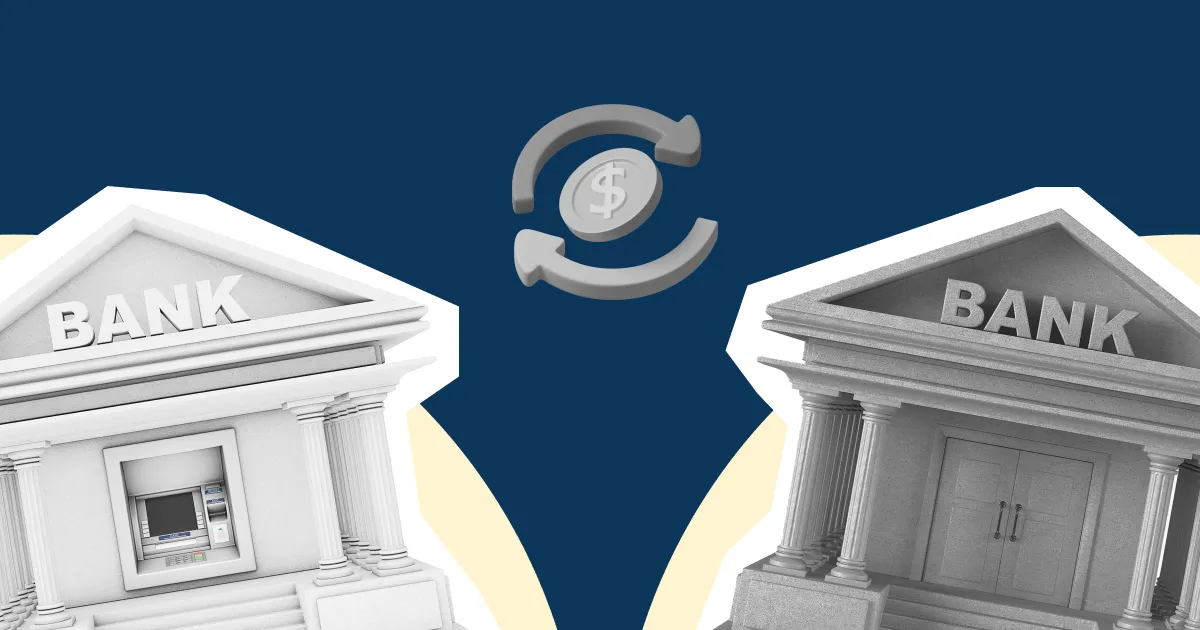Summary
- A demand deposit account (DDA) is a common bank account that allows you to withdraw funds at any time without notifying the bank
- DDA accounts help companies and individuals handle day-to-day payments
- Deposits in DDA accounts usually attract a low interest rate
- For benefit of (FBO) accounts is a bank account held by a business on behalf of its customers, allowing them to act as intermediaries
- FBO accounts offer businesses a convenient way to manage multiple client accounts on one platform through a single intermediary (such as a fintech company)
- FBO and DDA accounts serve different purposes, but both are essential to efficient business fund management.
If you manage a growing business, managing payments to multiple clients can quickly become complicated. Fortunately, the emergence of financial management solutions that go beyond traditional banks is making your life easier. One such option is the FBO (for benefit of) account, which is gaining traction among forward-looking companies for making transactions faster, smoother, and more transparent and offering strong compliance and fraud prevention features. Of course, its advent doesn't spell the end of traditional accounts, collectively called demand deposit accounts (DDAs).
To empower you, entrepreneurs, to make optimal financial management choices, this article offers an in-depth explanation of DDA accounts and FBO accounts, their benefits, and differences.

What is a demand deposit account?
Think checking account or savings account, both types of demand deposit accounts.
A DDA account allows the account holder to withdraw funds at any time without prior notice to the bank. It's typically used to pay for day-to-day expenses. A DDA account can be a personal or business account, with the holder having direct ownership.
These accounts are highly liquid, offering easy access to funds. Banks offering DDA accounts might pay a low interest on the deposit or none at all.
How does a DDA account work?
As an entrepreneur, you can use demand deposit accounts to pay vendors, transfer funds, and track transactions. The funds are available 'on demand', so whenever a supplier invoice deadline is up or rent is due, you simply tap into the account and make a payment through channels such as online transfers, ATM/debit cards, cheques, and teller services.
Depending on the bank, DDA accounts might come with withdrawal limits. Some might offer overdraft facilities up to a pre-determined limit.

Examples of DDA accounts
- Checking accounts
- Savings accounts
- Current accounts
- Money market accounts, which are classified as DDA accounts by some but not all financial authorities.
What is an FBO account?
Under this non-traditional banking model, an intermediary business (fintech) holds a bank account on behalf of its customer (individual or entity). The fintech is the owner of the account and is responsible for managing funds on the customer's behalf. Legal ownership of the money, though, remains with the customer. In another FBO model, the fintech has a partner bank, which holds ownership of the account.
An FBO account can have multiple sub-accounts, each holding funds for a specific purpose or client. As a result, an FBO account is called a pooled account.

How does an FBO account work in fintech?
- Your company sets up an FBO account with a fintech. The account name includes the phrase 'for the benefit of' followed by your company's name, making ownership clear. In the agreement with the fintech, you spell out what the funds are intended for and the purpose of each sub-account.
- You deposit funds in the account. Note that FBO account deposits can be made by you, the fintech managing your account, or any other authorised third party.
- The fintech records each deposit, ensuring it meets the stipulated purpose.
- It also manages the entire FBO account, making timely and secure vendor payments as per the intended purpose.
- Furthermore, the fintech provides detailed statements of all financial activities stemming from the FBO account.
Examples of FBO accounts
According to the example given above, fintechs use FBO accounts to offer their clients financial management and banking services. Similarly, insurance companies use FBO accounts to manage their clients' premiums and claims, escrow service providers to effectively handle property tax payments, and payment processors to manage transactions between companies and their customers.
DDA account vs FBO account: Key differences
Demand deposit accounts and for benefit of accounts are fundamentally different. Here are four distinct areas in which they differ:
Ownership
A DDA account facilitates a direct relationship between the end user and the bank. The account holder can directly access and manage funds in the account.
Under the FBO account model, the end user and the financial institution hosting the account share an indirect relationship with the intermediary (fintech) operating the account on the former's behalf. The end user doesn't have direct access to the funds. Instead, the fintech is legally responsible for managing the pooled account in the client's best interest.
Deposit insurance
Deposits in DDA accounts are insured against bank failure under various deposit insurance schemes. In the US, this scheme is administered by the Federal Deposit Insurance Corporation (FDIC) and in Singapore by the Singapore Deposit Insurance Corporation (SDIC). ¹
The FDIC insurance covers at least USD $250,000 per depositor per bank, while SDIC insurance covers up to SGD $100,000 per depositor per bank. ²
In the case of most FBO accounts, what's called a 'pass-through' deposit insurance applies. It covers deposits held in FDIC member banks through third parties/intermediaries. However, the insurer will only approve the pass-through arrangement for your FBO account if it meets certain conditions. ³

Security and compliance
Both account types are monitored by banking regulators and authorities (for example, central banks) to prevent mismanagement and fraud. Banks conduct regular audits and set down KYC guidelines to ensure high levels of security and compliance.
For FBO accounts managed by fintechs, additional compliance requirements such as anti-money laundering standards, regulations covering data privacy, tax compliance, segregation of funds, reporting, and transparency, and industry-specific rules might apply.
Financial institutions and fintechs provide further layers of security through measures such as end-to-end encryption and multi-factor authentication.
Benefits
Opening a DDA account brings you these advantages:
- Direct and easy access to funds
- Superior liquidity management. You can use your DDA account to pay vendors and clients, transfer funds, make investments, and track all your transactions easily
- Straightforward account set-up. To set up a business account, you'll need to provide identification and other documentation
- Financial institutions offering DDA accounts are covered by banking regulations and deposit insurance schemes

And these are the benefits of an FBO account:
- As an entrepreneur, you can park your funds in the account safe in the knowledge that these will be managed efficiently, securely, and transparently.
- A single FBO account can host multiple sub-accounts, allowing you to segregate funds according to a specific client or purpose.
- It comes with an easy-to-use tracking system that helps you monitor transactions from multiple sub-accounts on a single dashboard.
- Like traditional bank accounts, FBO accounts are governed by robust banking and fintech-specific laws, including data protection, transparency, reporting, and compliance regulations.
- Living in the digital age means FBO accounts offer innovative fund management solutions such as segregation of funds, digital wallets, virtual accounts and cards, cryptocurrency services, etc.
- Potentially, an FBO account can ease the process for you to reach new markets. You can send money to multiple states without wasting time on acquiring some (not all) of the relevant state licences. However, this might mean dealing with stricter compliance demands.
DDA account vs FBO account: Which one is safer?
There is no one factor that suggests one is safer or better than the other. It boils down to how all the money is managed by the bank/intermediary and what safety standards are in place. So, before picking either account, do consider these factors:
- Understand the purpose each account serves. A small business with limited payment operations and daily transactions will likely benefit from a traditional business account. But if your company has to manage funds for multiple parties, you might be better off with an FBO account, where an intermediary handles your vendor-specific payments.
- Be clear about account and ownership structures. In the case of FBO accounts, familiarise yourself with naming conventions. Remember, the account title must clearly say the account is for the benefit of your company. Also, don't forget to specify the purpose of funds in each sub-account.
- Pick the right bank or fintech. Shortlist your top picks and compare what each offers. It's often a good idea to go with an institution that has experience in your type of business or industry. Be informed about transaction fees, minimum balance requirements, overdraft facilities, etc.
- Pay attention to compliance requirements and regulatory requirements. Does your bank/fintech of choice offer sufficient security, risk management, and operational integrity to keep you safe from fraud, data breaches and security lapses? Does it ensure compliance with relevant laws and rules in all the states, countries, and markets you do business in? Make an informed choice after doing all due diligence.

Manage your business funds safely, confidently with Aspire
The first step to running a global business is opening a business account that supports your ambitions. Aspire's Business Account offers fast and transparent international payments in 30+ currencies at even lower FX rates than before. Here's a comparison chart that demonstrates how our rates compare with others. Other features include no initial deposit, no monthly fees, zero minimum balance requirement. Each virtual account comes with unlimited virtual corporate cards with customisable, in-built spend controls and attractive cash-back offers. Our tier-1 bank partners keep your funds secure.
And, you know what? It takes just three short steps to open your account with us. We know, because we tested it and managed to set up our account in less than 10 minutes. Neat!
To go with our business account, we also offer an integrated expense management solution that is designed to help you scale at speed.
Frequently asked questions (FAQs)
What is a DDA account?
Short for demand deposit account, a DDA account is a type of account that enables the on-demand withdrawal of customer funds at any time without notifying the bank. Savings accounts and current accounts are examples of DDA accounts.
Is a DDA number the same as a bank account number?
Yes, a DDA number is technically the same thing as your savings or current account number.
What is an FBO account?
An FBO account is an account where an organisation or business (say, a fintech) manages funds for another business.
What are the risks of an FBO account?
An FBO account is as safe (or not) as any bank account. If there is an additional element of risk, it is probably due to the deposit insurance coverage that must extend from the account manager (fintech) to the end user (you). Also, while fintechs provide several layers of security to your deposit, it is ultimately up to the partner banks to support the account. Should the bank choose to, or be made to, end this service, your funds might be in danger.
Frequently Asked Questions
- Federal Deposit Insurance Corporation - https://www.fdic.gov/resources/deposit-insurance/faq
- MoneySense - https://www.moneysense.gov.sg/understanding-deposit-insurance/
- Federal Deposit Insurance Corporation - https://www.fdic.gov/financial-institution-employees-guide-deposit-insurance/pass-through-deposit-insurance-coverage










%201.webp)


.webp)